February 28, 2025 | 12:16 GMT +7
February 28, 2025 | 12:16 GMT +7
Hotline: 0913.378.918
February 28, 2025 | 12:16 GMT +7
Hotline: 0913.378.918
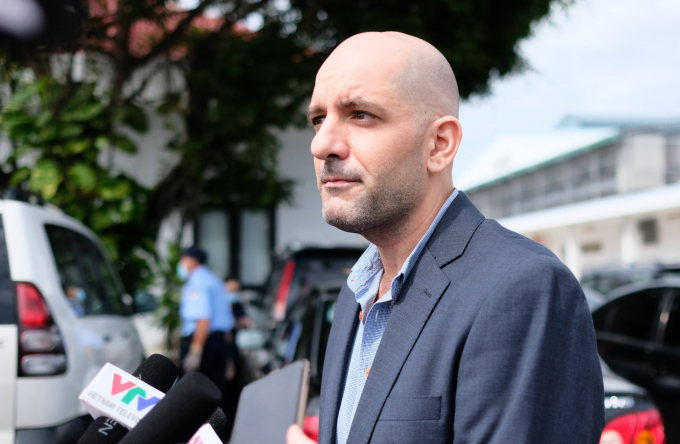
Mr. Saonil Minguenz Ruben highly appreciated Vietnam’s efforts in the fight against IUU fishing. Photo by: KS.
At the conference on promoting tuna supply chain, combating IUU fishing and exporting tuna to Europe under the EVFTA agreement organized by the Ministry of Agriculture and Rural Development in coordination with Khanh Hoa Provincial People’s Committee, Mr. Saonil Miguenz Ruben, Deputy Chief Representative of the Spanish Chamber of Commerce and Industry in Vietnam highly appreciated the efforts of the Government, businesses and fishermen of Vietnam in combating IUU fishing as recommended by the EC.
Vietnam has issued the 2017 Law on Fisheries according to EC recommendations, and its accompanying documents are all geared towards sustainable development of fisheries, said Mr. Saonil Miguenz Ruben. Vietnam has also established a National Steering Committee against IUU fishing. In particular, it is required that fishing vessels be installed cruise monitoring equipment and marked. It means that Vietnam has made a remarkable progress compared to the previous inspection.
As of August 31, 2020, 24,851/30,851 fishing vessels with length of at least 15 meters were installed with cruise monitoring equipment, reaching the rate of 80.61%. In particular, there were 2,204/2,600 fishing vessels with length from at least 24 meters, reaching the rate of 84.77%, and 22,667/28,251 from 15 meters to less than 24 meters, reaching the rate of 80.23%.
Mr. Saonil Miguenz Ruben also highly appreciated the fact that Vietnam is trying to ensure traceability of the seafood supply chain, from fishing supervision, docking, import, processing and market circulation; taking good control of fishing vessels in and out of the ports and the output of seafood handled at the ports. In addition, the building of new vessels is in accordance with legal standards as well as European standards recommended for Vietnam.
In addition, Vietnam has also made a master plan for the protection and exploitation of aquatic resources, from which to re-plan the fishing fleet to suit resource reserves and develop sustainable and responsible fisheries. The Port State Measures Agreement (PSMA) has initially been implemented to control fisheries and seafood origin of foreign ships docking in Vietnam.
Vietnam’s efforts in contributing initiatives to regional and international fisheries organizations have also been recognized, especially issues related to sustainable fisheries development (Agreement on the implementation of the provisions of United Nations Convention on the Law of the Sea on the Conservation and Management of Straddling Fish and Highly Migratory Fish Stocks - UNFSA; FAO’s Port State Measures Agreement (FAO - PSMA) to prevent and combat Illegal, Unreported and Unregulated (IUU) Fishing, establishment of anti-IUU network of countries in the region (ASEAN IUU Network).
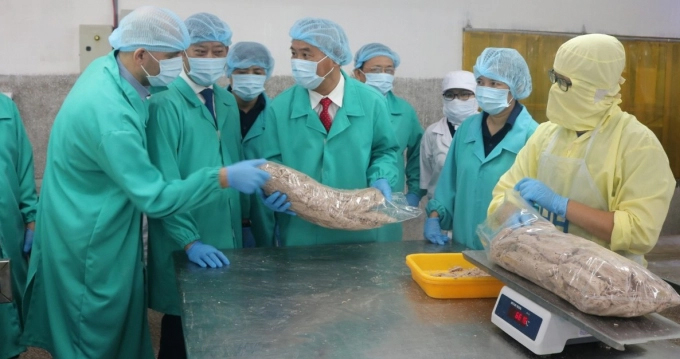
Deputy Minister of Agriculture and Rural Development Phung Duc Tien and Mr. Saonil Miguenz Ruben visit the tuna processing factory of Hai Vuong Co.Ltd. Photo by: KS.
According to Mr. Saonil Miguenz Ruben, Vietnam currently ranks 3rd in the world for seafood export. Meanwhile, the EU is a huge seafood consumption market with about 22 kg/person/year. Therefore, EVFTA Agreement is a great opportunity for Vietnamese seafood.
However, in order to export seafood to the EU smoothly, Mr. Saonil Miguenz Ruben noted that products must ensure traceability and avoid illegal fishing. Seafood products must have food safety certificates and product labels, complying with the hygiene standards recommended by the EU. Food safety certificates may follow IFS or BRC. In addition to the above criteria, seafood products entering the European market must also meet the requirement of high social and environmental responsibility.
“The EVFTA Agreement with special preferences on tariffs opens up even greater potential for Vietnamese tuna products. By the end of July 2020, Vietnamese tuna exports to the EU market reached an average of 10.5 million USD /month. Since the EVFTA took effect on August 1, 2020, tuna export value has increased to 11.4 million USD (up 8.6%) and 11.9 million USD in September, up 13.3 % compared with the previous months”, Deputy Minister of Agriculture and Rural Development Phung Duc Tien.
Author: Kim Sơ. Translated by Huyền Dân. Edited by Đức Huy
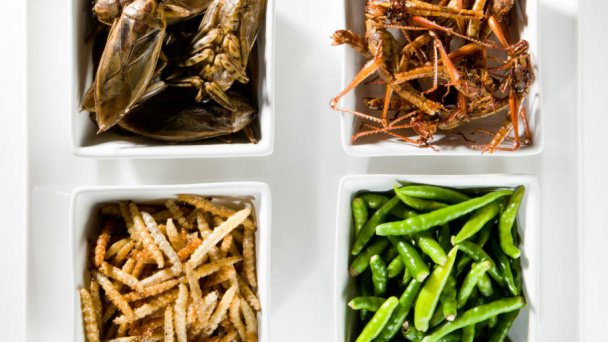
(VAN) Europe has specific standards and regulations for novel foods and food additives which seek for importation into this market.
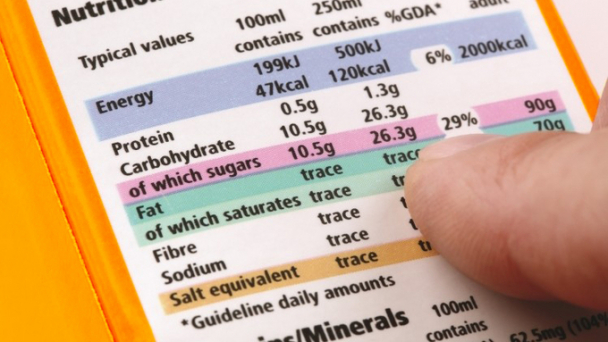
(VAN) Labels on export products must not be misleading and must include usage instructions in situations where proper use may be challenging.
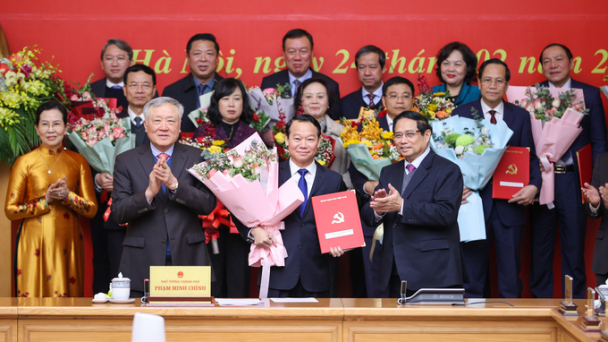
(VAN) On February 24, Secretary of the Government Party Committee and Prime Minister handed over decision to establish 15 Party Committees under the Government Party Committee, including that of the Ministry of Agriculture and Environment.
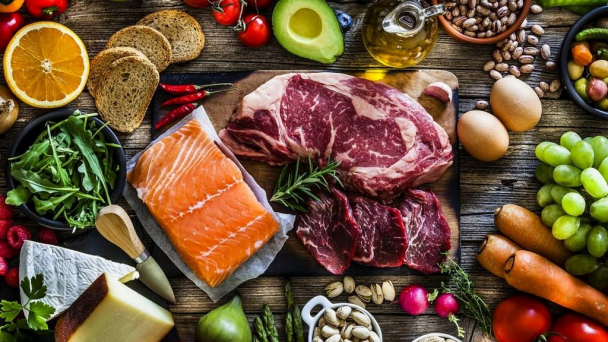
(VAN) Europe has issued a series of regulations on food safety and origin traceability to component food including products with animal-material contain.
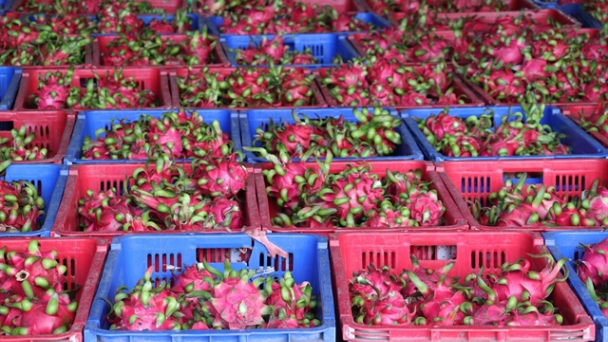
(VAN) The provinces and cities receiving the most EU warnings are those yet to implement plans for the SPS Scheme.
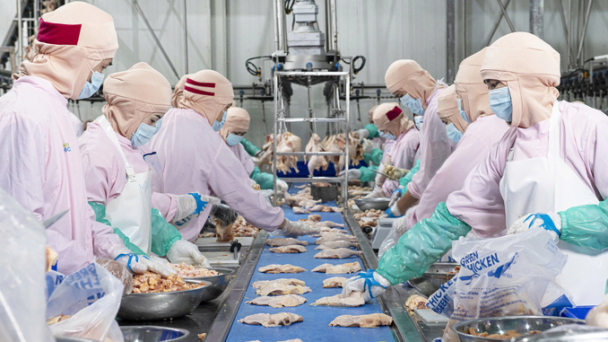
(VAN) In 2024, Vietnam received 14 warnings from the EU—double the number from the previous year. One reason originates from the incomplete acknowledgment by enterprises, organizations, and individuals.
/2025/02/23/1014-2-114305_220.jpg)
(VAN) The Prime Minister requested to implement solutions to promote the circular economy and sustainable production, consumption, and trade to meet green policies of the European Union.